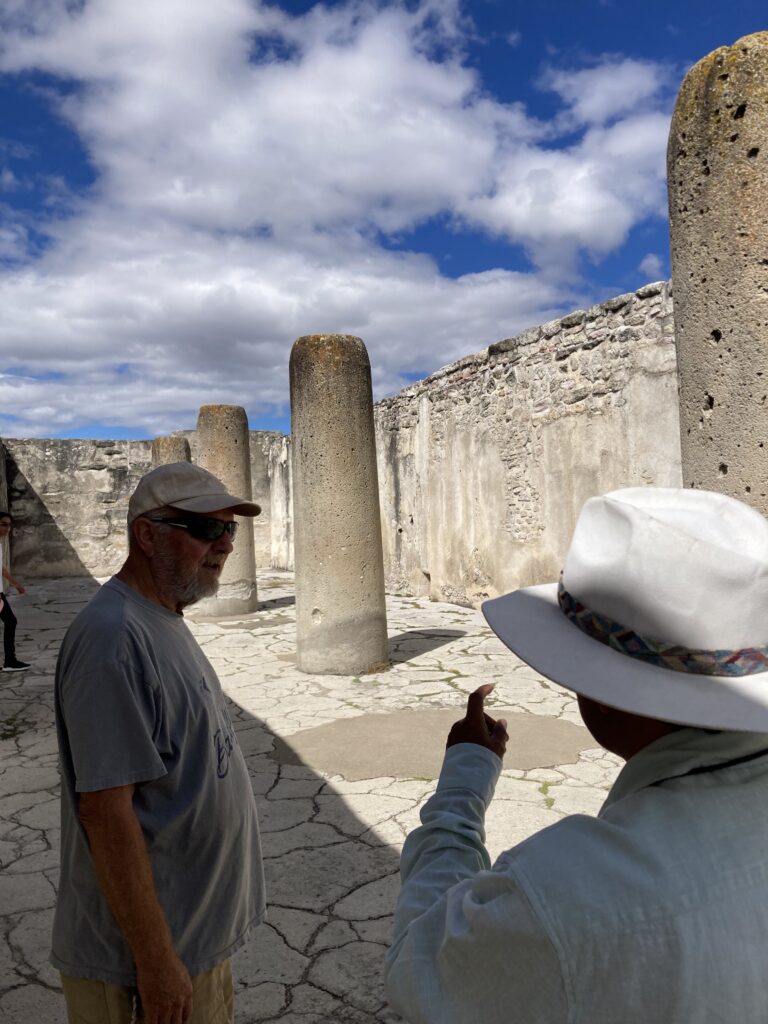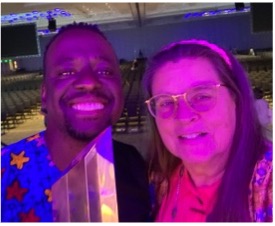“History should not be taught as a collection of dates and places. But rather be approached to arouse gratitude and appreciation. This gratitude should be aroused first to the law and order of the universe and the preparation of the environment into which human beings came.” Maria Montessori
Approaching an American holiday with troubled roots while living in a country fraught with its own history of conquest has me reflective, if not troubled, about how colonization has wheedled its way into the nooks and crannies of our cultures. This piece won’t solve my mental anguish, but I hope it will begin a conversation in your world, around the dinner table or conference table.
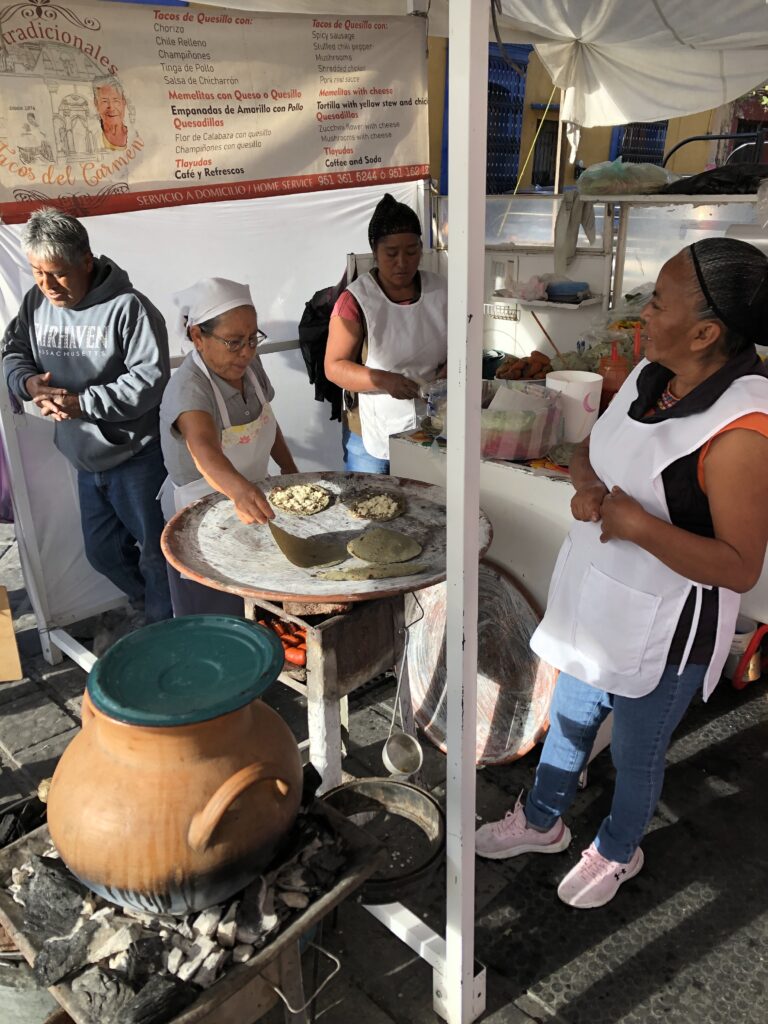
In search of traditional, off-the-beaten-path locales and culture, we’ve been rewarded with open-air restaurants using wood-stoked fire to heat the cooking platters and heavy pottery cooking pots, freshly pressed tortillas turned into memellas and Tlayuda filled with flor de calabaza and quesilla and the simplicity of daily trips to the mercado to buy what is available for immediate preparation in the winter season.
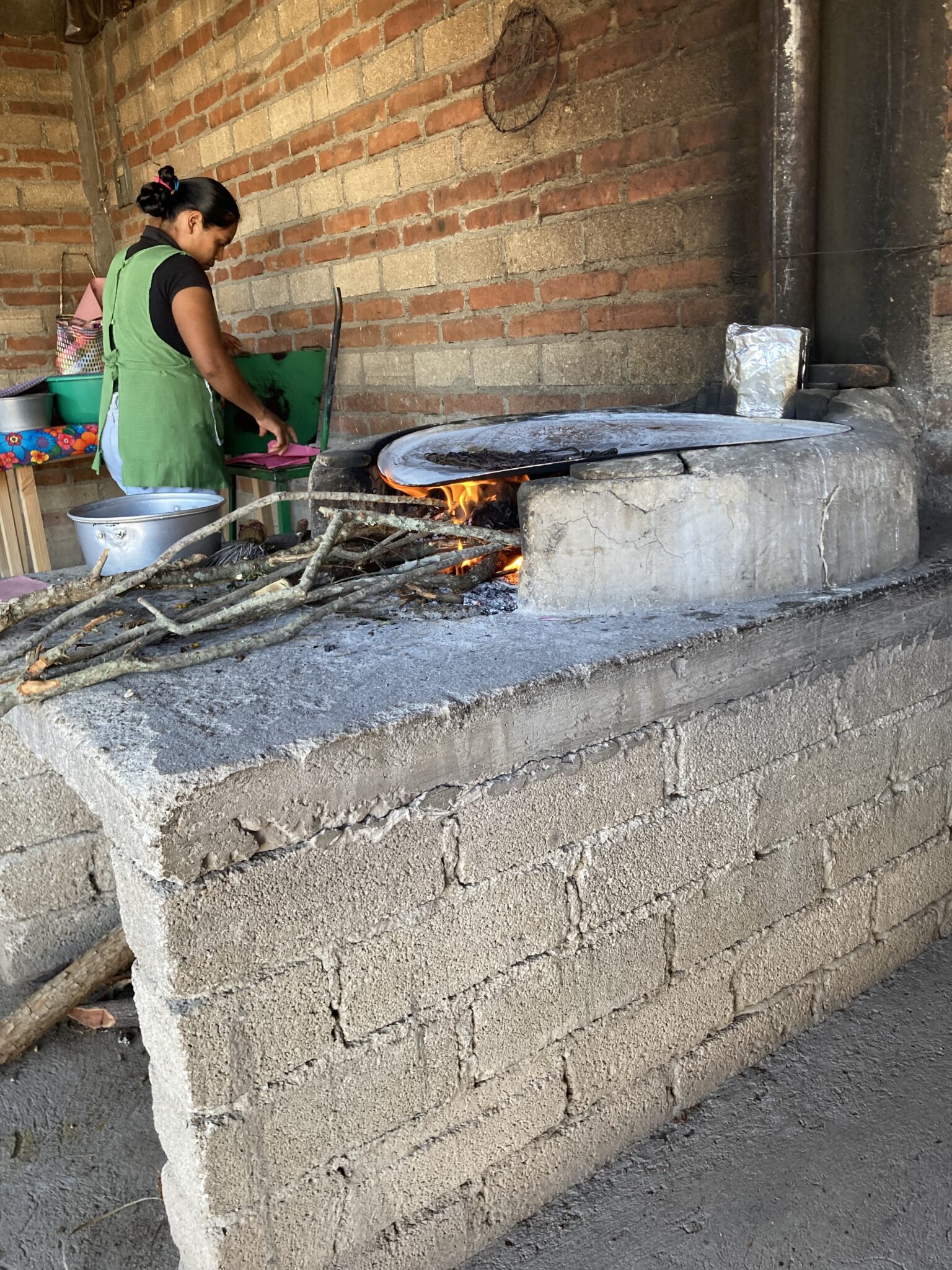

We’ve been greeted with foreign, sometimes mildly putrid, fragrances in the meat stalls with their unrefrigerated hanging offerings and the piles of calabazas, tomatoes, plantains, chayote and nopales along with the festive décor that seems to be everywhere since Die De Muertos. And of course, mole and chocolate of so many varieties. You guessed it: we’re travelling in Mexico.
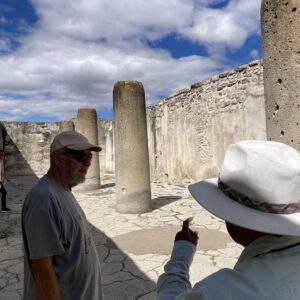
We’ve also begun to learn the Mexican story of conquest and, like our own US history, it’s not as simple as colonization by Europeans.
We visited Mitla, one of the earliest Zapoteca cities with remnants of the temples and sacred grounds that date back to 500 years BCE. Our guide shared the history of the Zapoteca being overtaken by the Mexica , those who would later be called the Aztecs. The remnants of the temple at Mitla, such as it was, left us with deep respect for their craftsmanship and, like the pyramids at Giza, their ingenuity to move large pillars of stone to great heights.
To have survived for more than 2500 years was astonishing, especially as our guide shared the good fortune that allowed even a small part of the temple to remain.
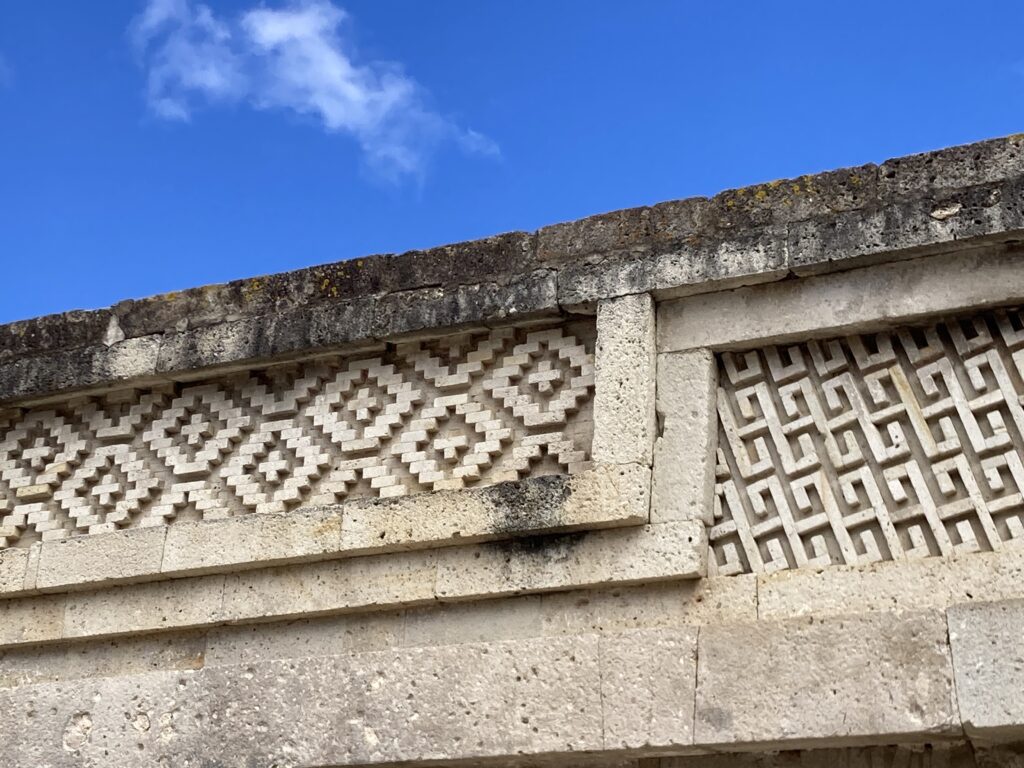
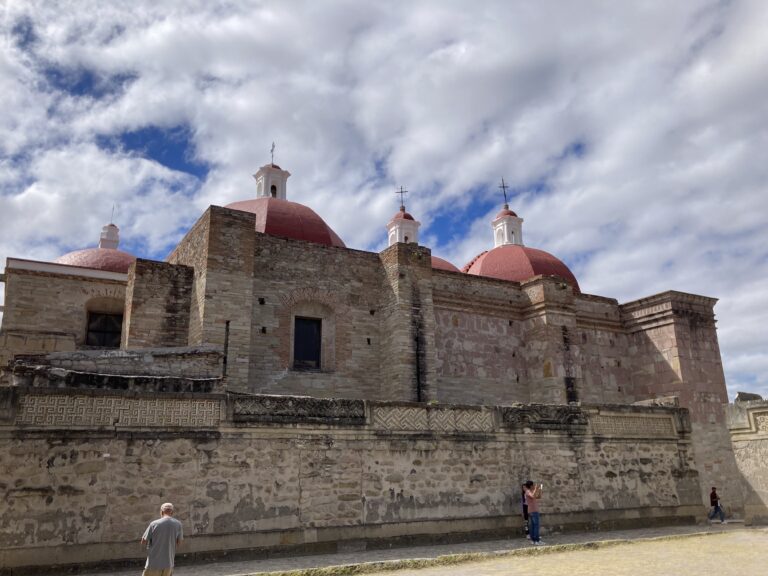
With his story, I’ve begun to scratch the surface of history that includes the struggles between indigenous groups, the Mexica and the Spaniards, especially Hernan de Cortez. It’s a complex and complicated story with so little “righteousness” on which to hang an intellectual or emotional response.
How do we come to terms with the realities of the conquered, the colonized and the disenfranchised? How do we seek truth and reconciliation? How shall we share the complex realities, often gruesome and horrifying, with our children so they can grow respect for each group that sought to survive and thrive?
Considering the fairy-tale story I leaned into all the way through the early days of my teaching career, I wonder about the culture that wanted me to see the greatness of the explorers and colonists who risked so much to find a new way of life among the people who first inhabited the lands. I ask myself how the culture of domination and colonization, much of it begun long before the arrival of the Europeans, is still influencing our world view. Most importantly, I wonder how to present a story that helps the culture of domination change for future generations.
While the remnants of fear and domination persist, I also see glimmers of desire for a new way of creating a world of conscious respect and admiration among the people. I believe we may be on the cusp of finding new ways to view our similarities and differences with an eye toward admiration; with a firm consciousness that we are better together.

